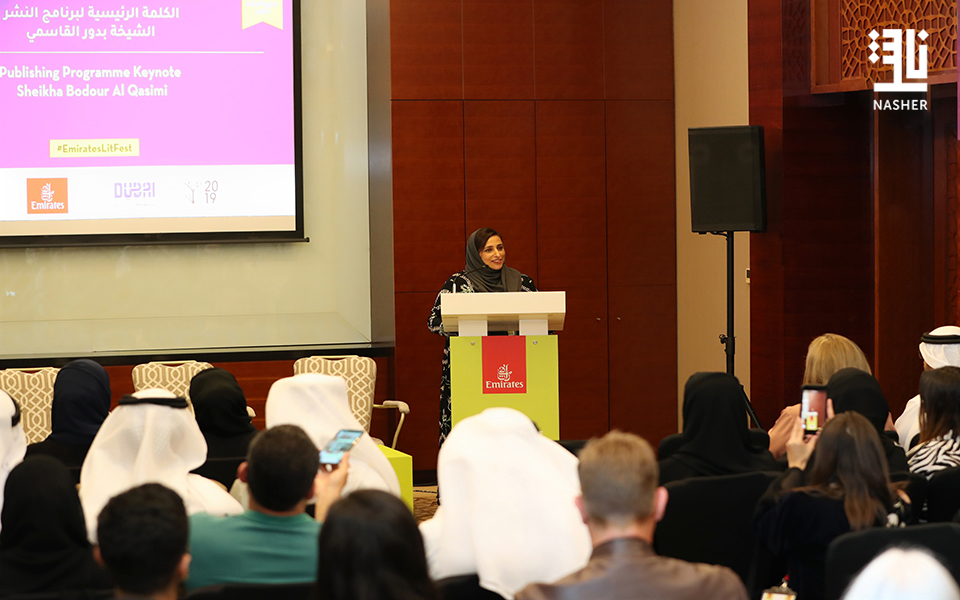Sheikha Bodour Al Qasimi, Vice President of the International Publishers Association, and founder and president of the UAE Publishers Association, announced that the association is finalising a major project with Neilsen to solve the problem of book tracking in the UAE.
“We have retailers and have been working on the mega project since a few months now. We shall finalise it soon and will announce its details accordingly,” said Sheikha Bodour in her keynote speech, publishing programme, in Thursday February 6 , at the running Emirates Festival of Literature ending on February 9.
Sheikha Bodour, meanwhile, emphasized the power of publishing in creating sustainable environments. Since her IFA tenure, work was undertaken with Dubai Cares to support African publishing projects with a budget of $800,000.
“For renovation, we identified Kenya’s Kalini area MacMillan Library which was initially embarked upon by two wonderful ladies, again proving that publishers are day changers in their societies,” said Sheikha Bodour.
To the book tracking system, Isobel Abulhoul OBE, CEO of the Emirates Literature Foundation and founder of the Emirates Airline Festival of Literature, said having an integrated Arabic book data tracking system in real time will help publishers understand what is happening and get data on their own books.
“When I was a bookseller, we used a software that revolutionised the way we got books and every single day we could track the sales. The sooner we have that access, the better booksellers and publishers will benefit,” Isobel stressed.
Iman Ben Chaibah, Vice President of Emirates Publishers Association and CEO of Sail Publishing, also said the rights of publishing Arabic books differ to those in the West, an issue to which Isobel also said “could limit translated books.”
Here Jamal Al Shehhi, author, founder and General Manager of Kuttab Publishing House, was all for joint publishing where agreements are arranged with their local publishers who are fully aware of the laws and the status of their markets.
“The regional book market is slow and the publishing industry is suffering because of regional events. I hope the UAE leads book tracking and joint publishing initiatives to benefit the region,” said Jamal.
He also felt the future of book tracking lies in the hands of online distribution platforms who have mega warehouses in the region such as Jamalon.
Book tracking, he added, can also be solved through the launch of more regional private printing presses owned by authors, a rising trend expected to grow further in the Arab World.
Isobel, however, called for the establishment of a bookseller’s association to have more connection between all parties in the publishing industry.
“If we start at home and get the UAE sorted, it will be a shiny model to be implemented regionally,” said Isobel.







